One night at our beach bungalow, Chan, the friendly owner, sat down and began telling us his life story. I am a little fuzzy on some of the details, but his sincerity, humor and compassion came through very clearly as he spoke. Here is Chan’s story, as I remember it.
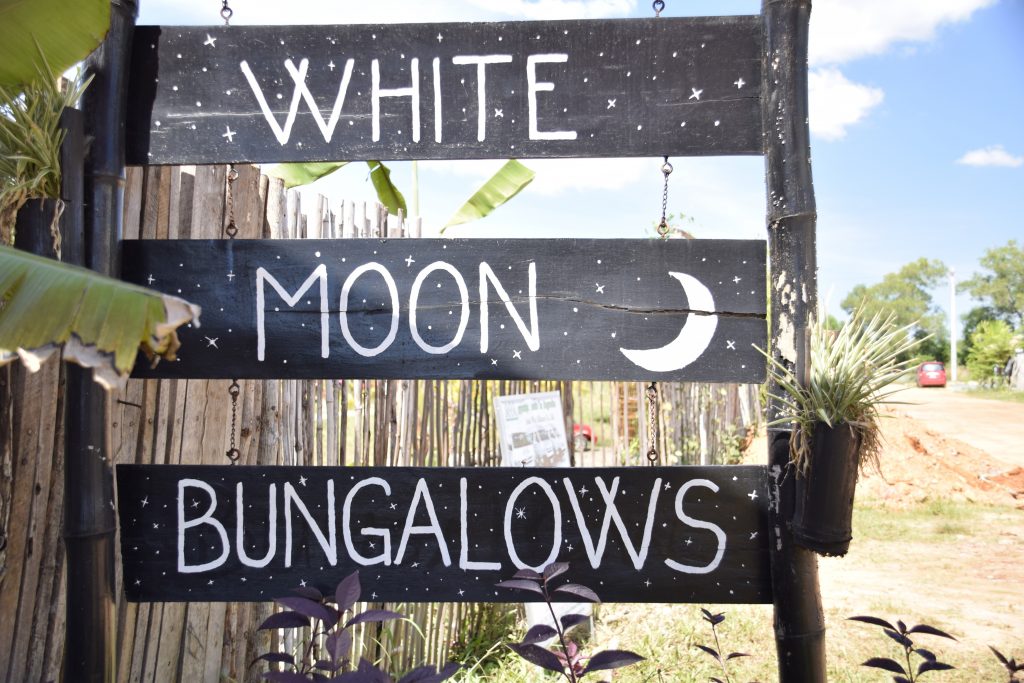
When he was in third grade, Chan’s parents asked him to leave school so he could help support the family. Being the only boy among six children meant he had to work to save money to send his sisters to school. His parents valued education, but just couldn’t make it work without Chan’s help. Chan also understood the importance of an education and managed to stay in school until sixth grade, but eventually left to work full-time.
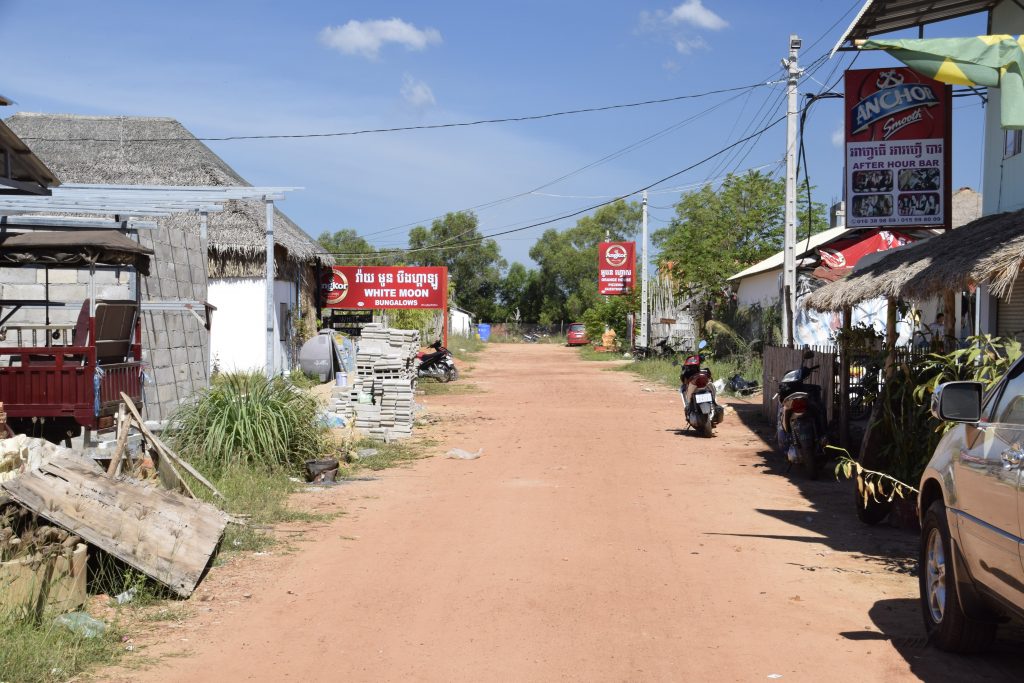
At the age of 12, he was taken in by a Chinese family. “They helped pay for my education,” he said. As he continued to describe the conditions he worked under, I realized he was not much more than a child slave. He was sent to school, but before school he had to wake up at 1:00 in the morning and work at a pig slaughterhouse for the rest of the night.
Chan had to slaughter 25-30 pigs every night. He described how he would hit the pig over the head with a metal rod, then they would cut the throat and blood would pour out everywhere. From there, the carcasses were put in a vat of water where the hair was scraped off.
The family that “took him in” also lent money to many others in the community. Chan went from house to house collecting debts in the afternoons. He then helped with housework and any other chores until evening. After about four hours of sleep, he woke up to go to the slaughterhouse again. He did this for six years – pig slaughterer, debt collector, house boy and student – all so he could continue his education and support his family.
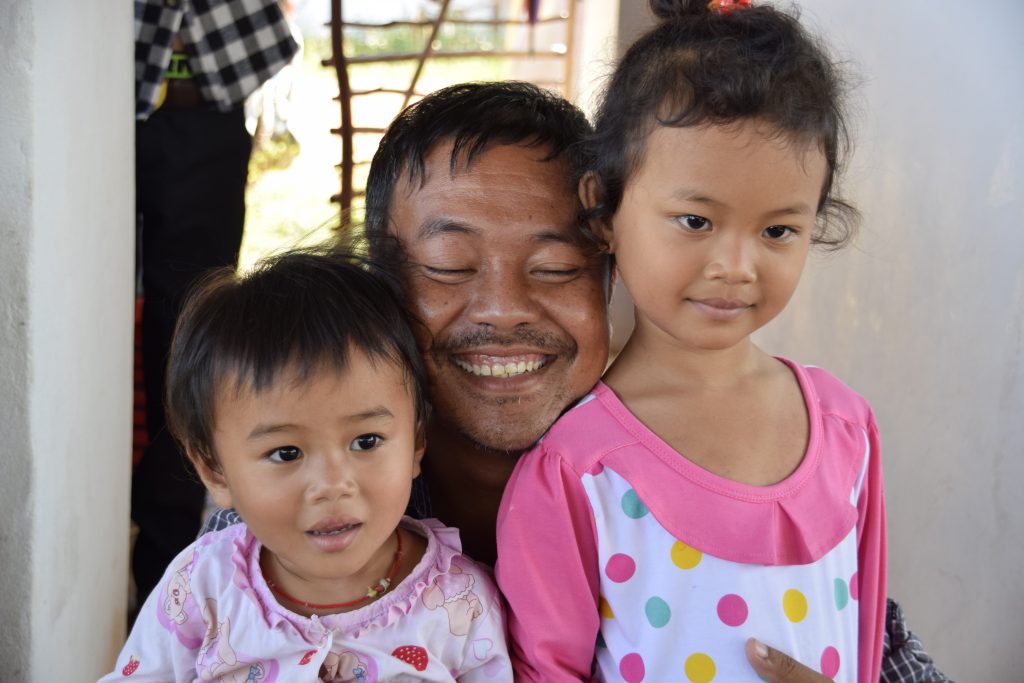
As his sisters grew older, their school fees increased. Chan wasn’t saving enough money in the current arrangement, so he left and began working in construction.
Chan started earning $7 a day but soon earned a couple of extra dollars more each day due to his ambition and ability to learn quickly. He would make sure to be the last one to leave the site, helping to clean up at the end of the day, and learning as much as he could. His bosses took note and paid him a little extra.
Eventually, Chan left construction work and began working with a wedding caterer. He would help prepare meals for elaborate wedding celebrations that sometimes lasted weeks. He earned better money and learned a great deal about cooking. As he did this, he continued to support his family.
As he described his life story, he continued to smile and speak positively despite the hardships he has faced. “We’re poor, but life is getting better” was a point he made more than once.
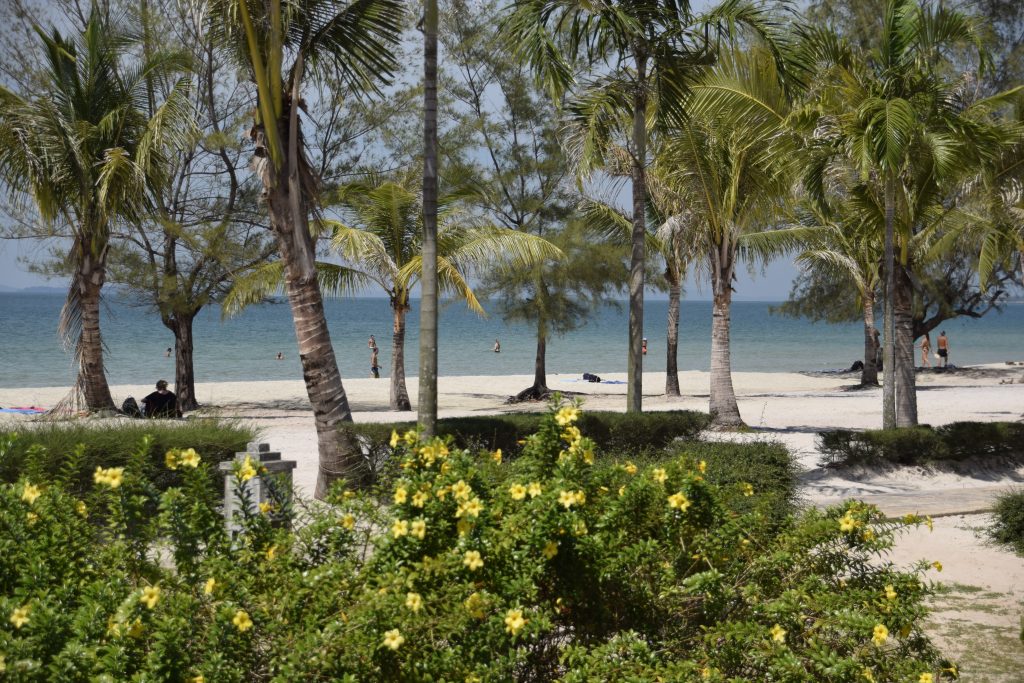
After a series of jobs working in restaurants and trying out his own restaurant, Chan lost a great deal of money when the government decided to expand a road and tear down his restaurant. He was not the owner of the land, so did not receive any compensation. He is still trying to recover from that loss, but remains hopeful and positive.
Today Chan runs the bungalows where we stayed for three nights in Otres Beach, outside of Sihanoukville in southwest Cambodia. He is in the second year of a ten-year lease on the land. Although the Gulf of Thailand is just a few blocks away, Chan rarely gets a chance to go there himself since he is always working. “When will you get a break?” we asked. “A break? During the rainy season, maybe. Unless I decide to do some projects like build another bungalow.”
Chan has taught himself English by studying, talking with foreigners, watching Chinese movies with English subtitles and sheer persistence.
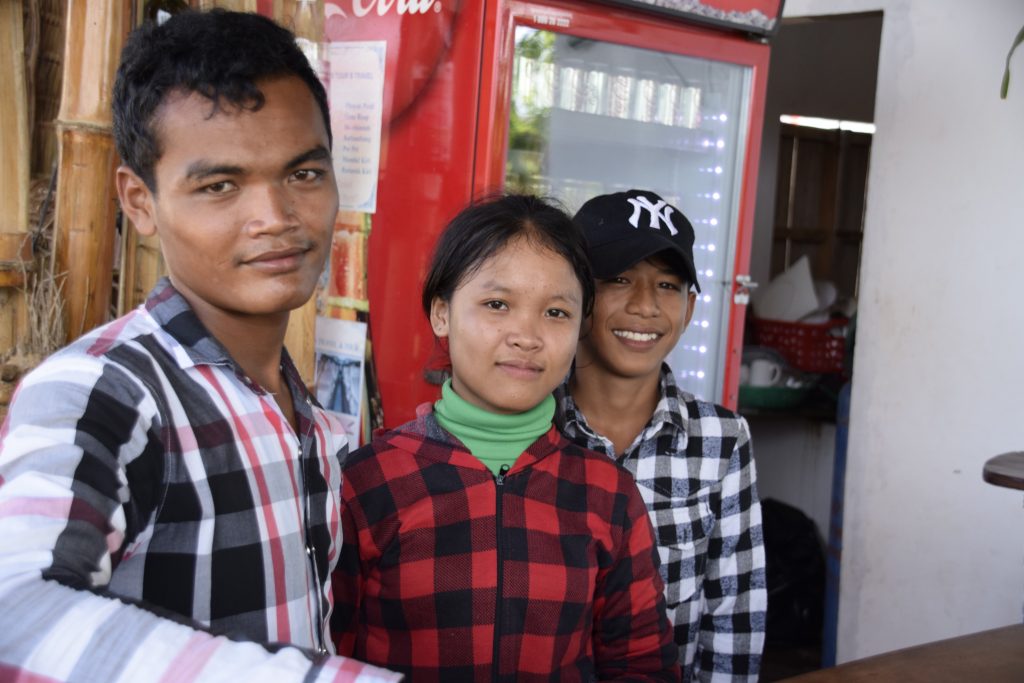
At the bungalow, Chan employs several young people from the countryside who have come here looking for work. He tries to pay a fair salary and teach them skills so that they can improve their own lives. His wife and two young children live here. There is construction going on in every corner of this village, and Chan provides blankets and even a dry place to sleep when the workers need it. The workers typically come from other towns and live at the sites, setting up hammocks to sleep in after a full day of working in the hot sun. Chan understands their hard lives and tries to help.
He does all of this while he continues to support his wife, two daughters and extended family. He has taken in his nephew and is working on getting him to go to school. He sends money and rice to his parents, sisters, and wife’s family when they need it, typically during the rainy season when there is little or no work. He saves money with the hope of sending his daughter to English school so that she can have more opportunities in the future. He is also paying off debts incurred from loans he received when running his business.
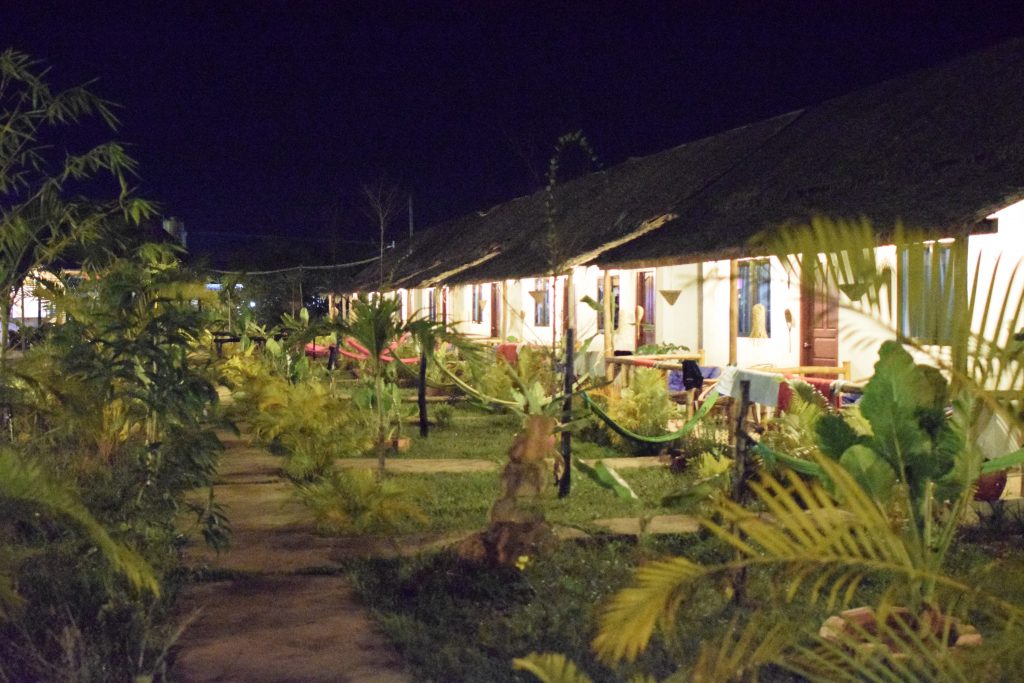
Chan spoke of the discrimination he has faced as someone who is poor. Before getting a loan for the bungalows in Otres 2 beach, he looked into opening a place in an even less-developed area. He was told that the area was not for poor people like him and was not able to pursue his interests there. He also said that many Chinese and Russian companies are buying stretches of beach and even whole islands for development, leaving the local people out of the loop.
Chan goes to the market at 5:00 every morning to buy supplies for the day, makes the most amazing breakfast and delicious pizzas, runs the bungalows, takes care of all of the maintenance and landscaping, makes everyone feel at home and takes care of his entire family. He does all of this on a very limited income. And he’s just 32 years old.
Chan is an amazing chef, entrepreneur and humanitarian. I am honored that he has allowed me to share his story.

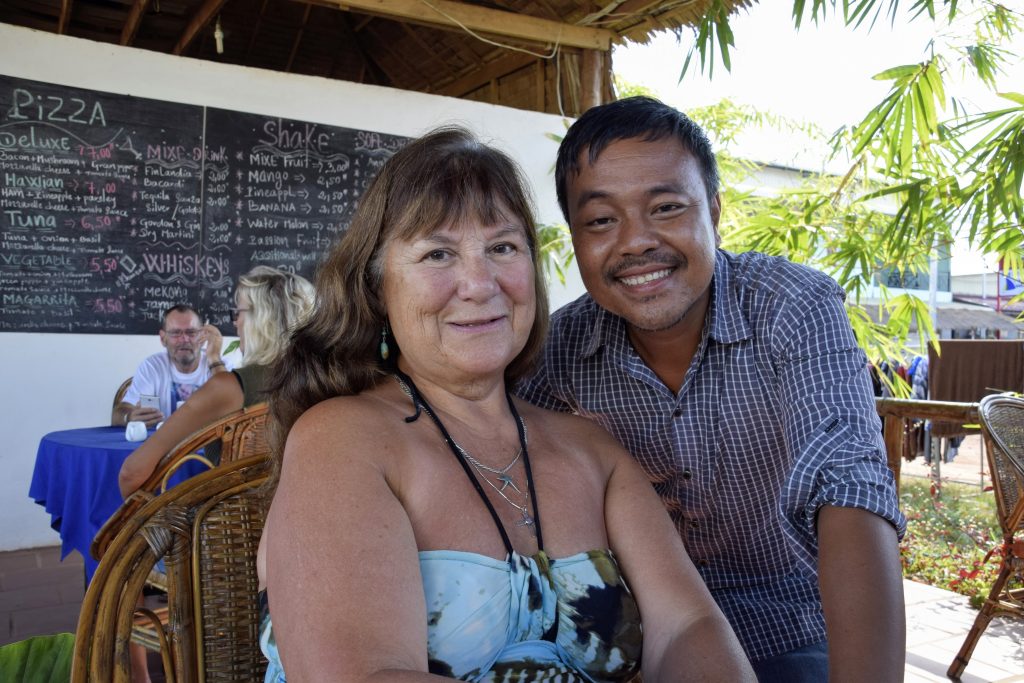
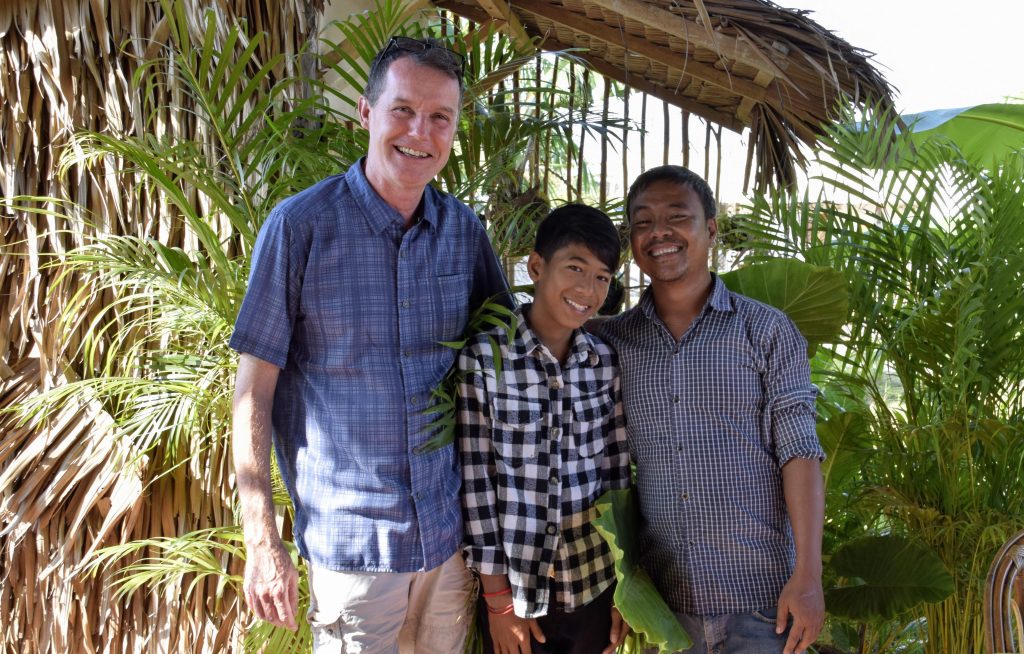
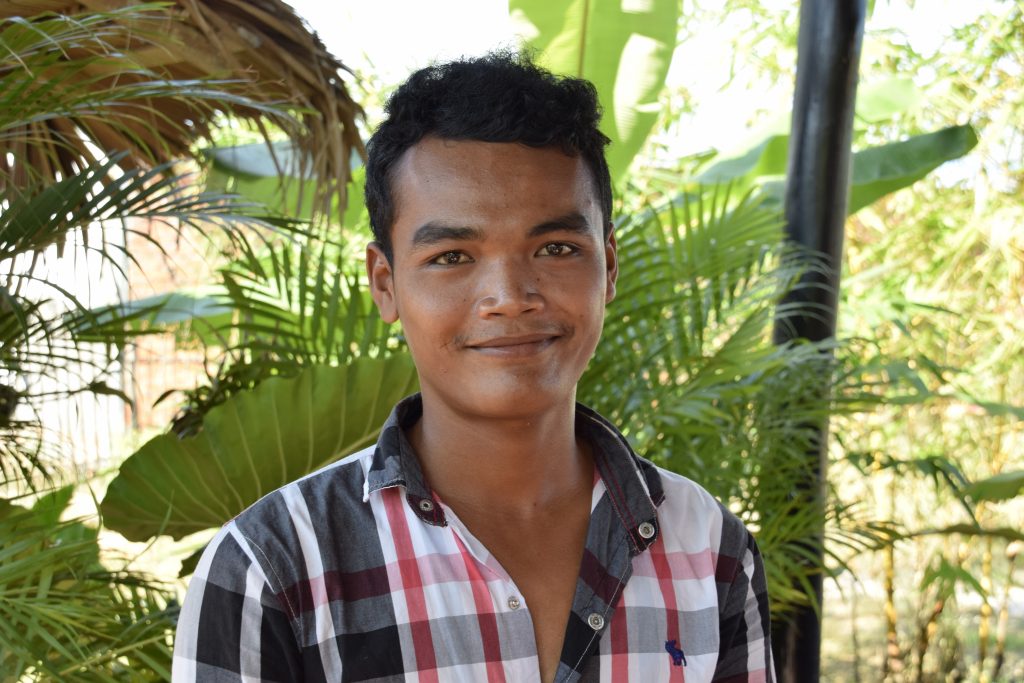

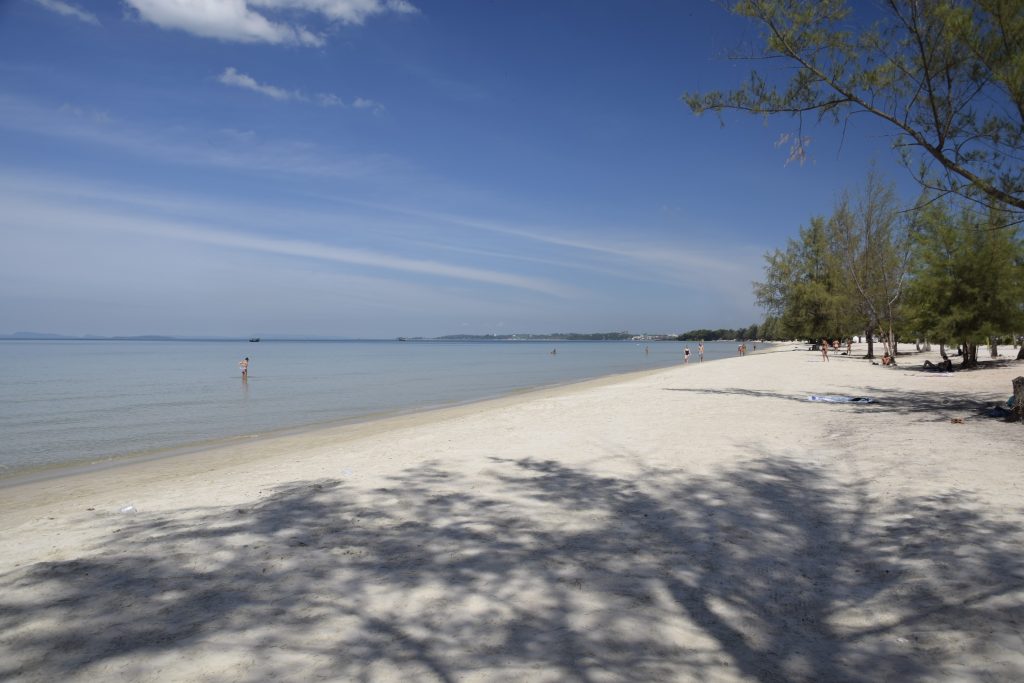
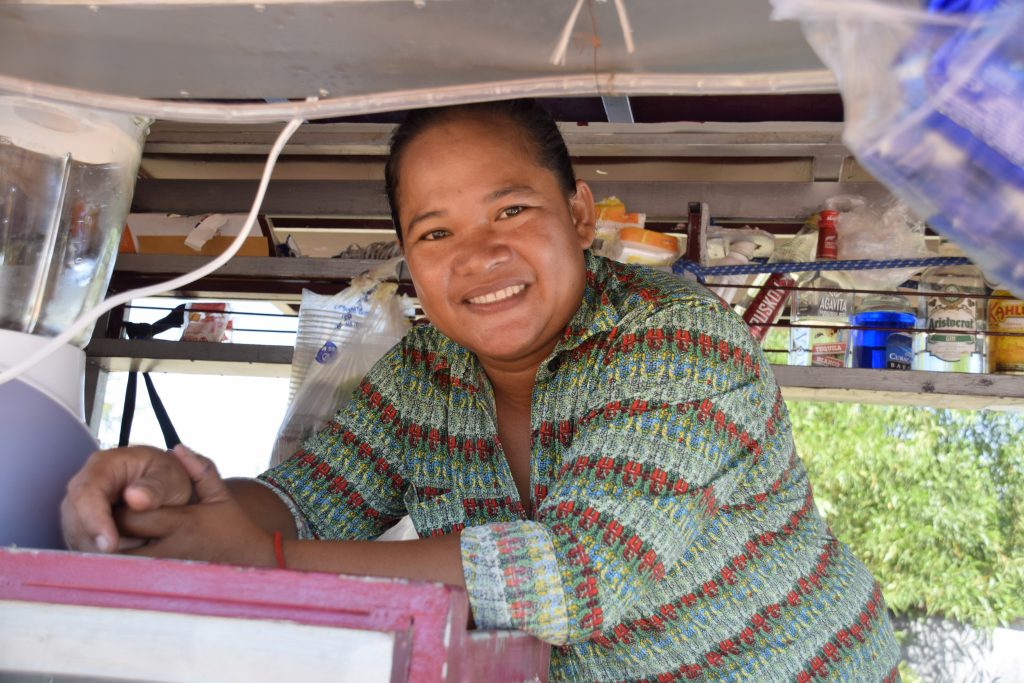
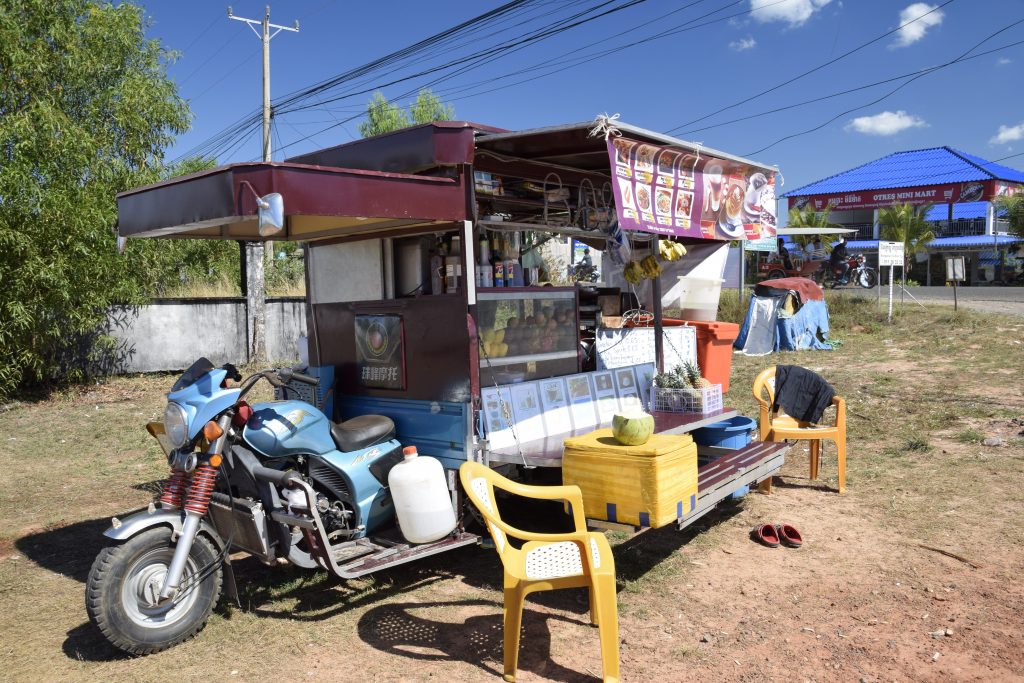
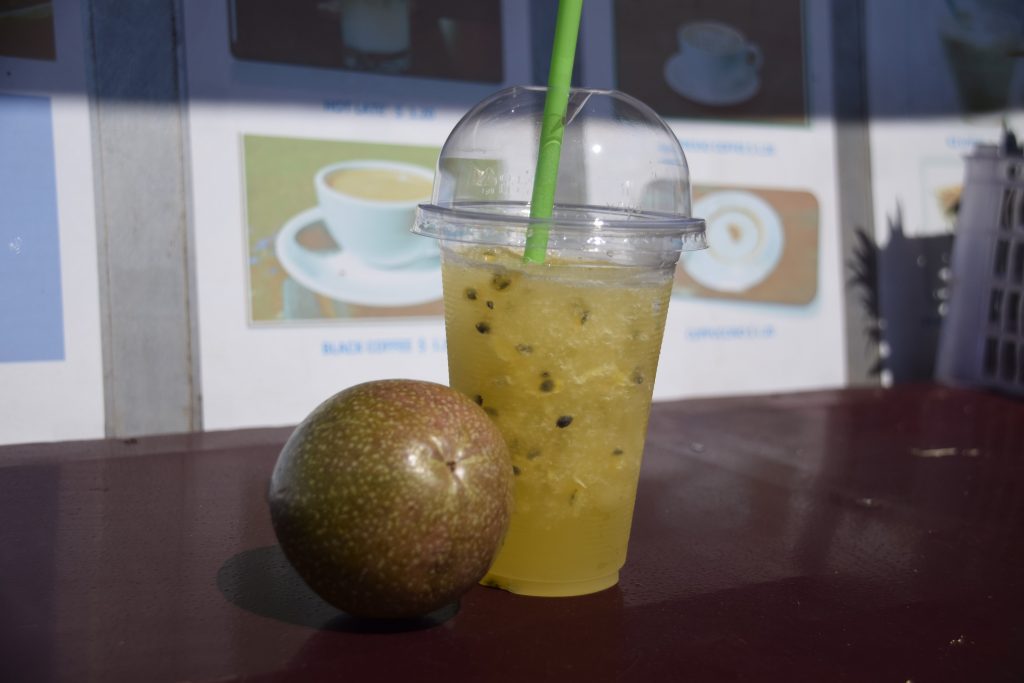
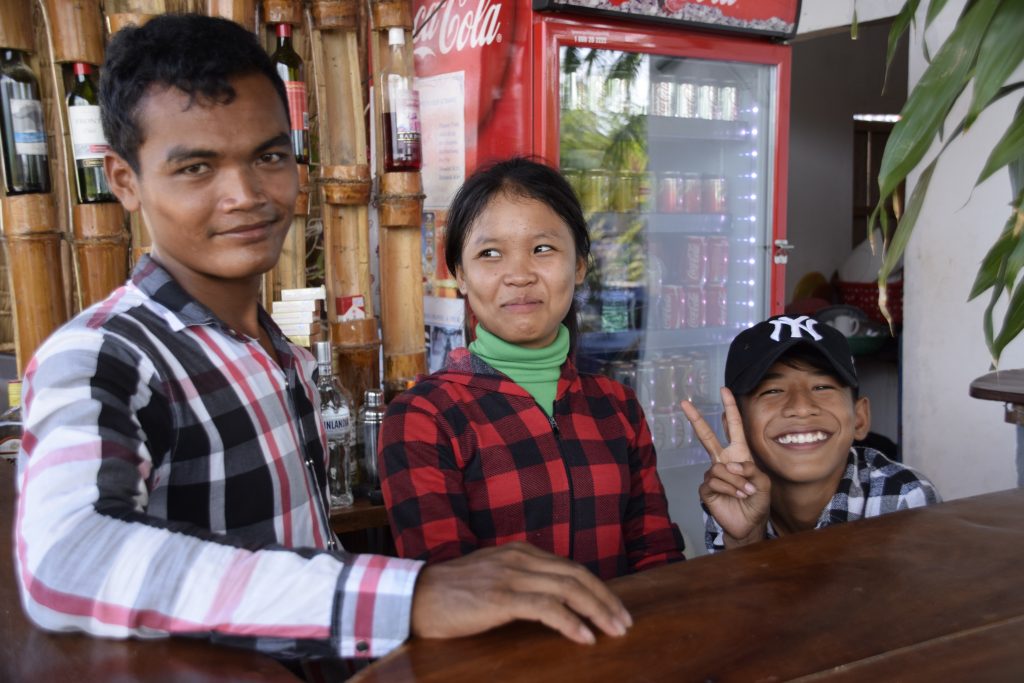

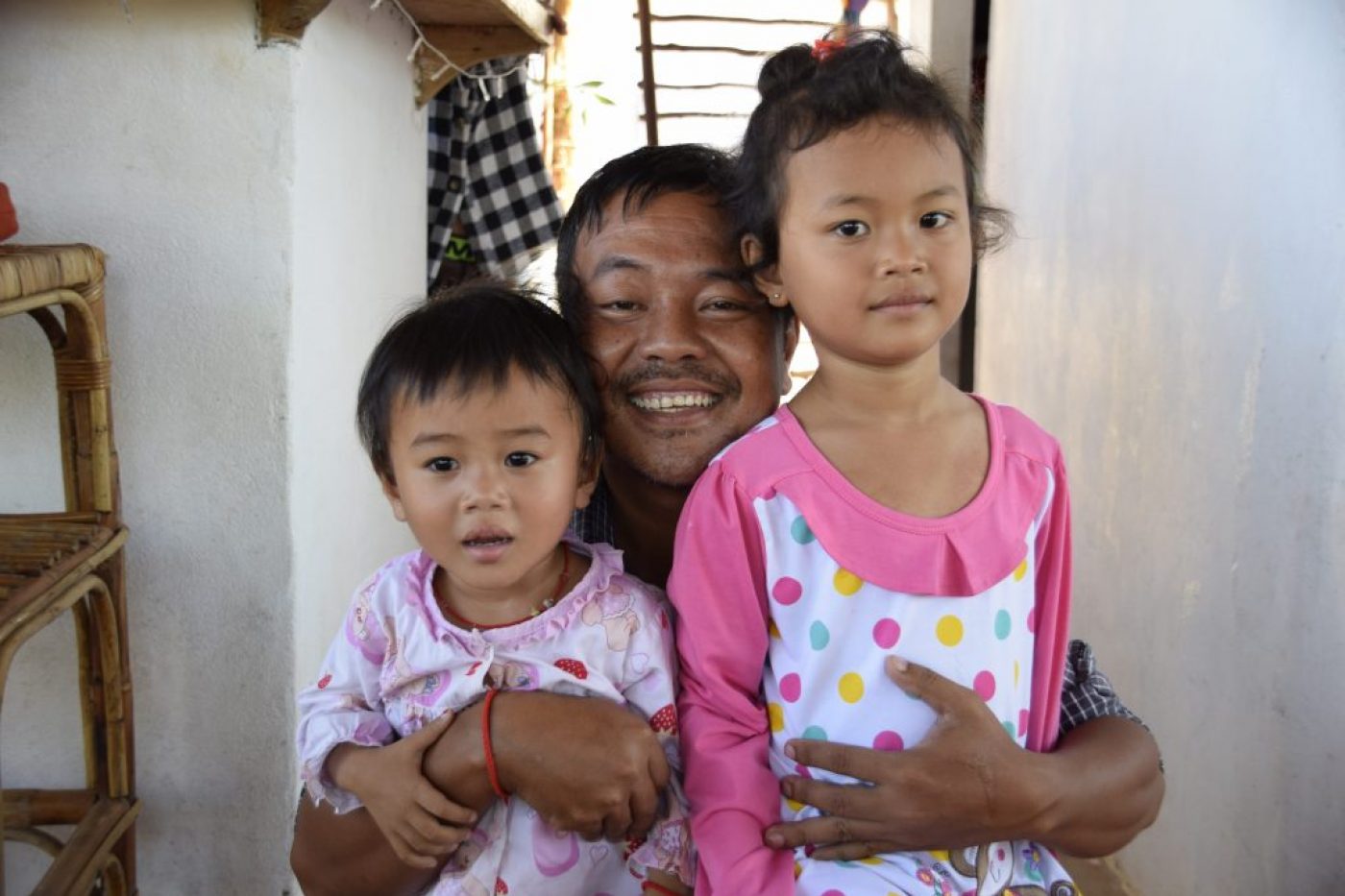
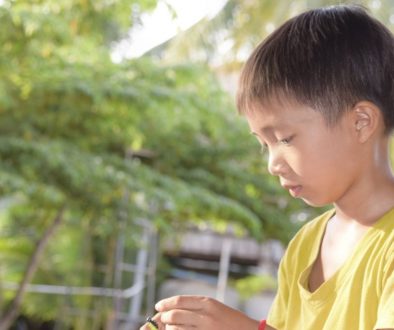
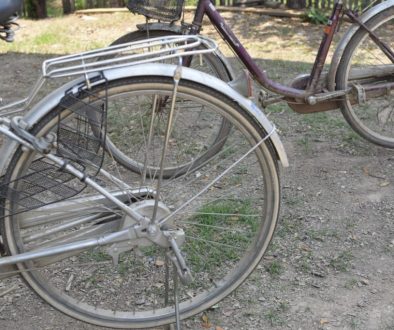
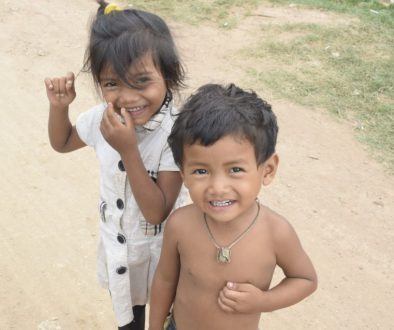
February 6, 2017 @ 05:44
What a wonderful story to start my day with! Thanks Tim.
February 9, 2017 @ 10:43
You’re welcome! Enjoy the snow day.
February 6, 2017 @ 06:02
What a beautiful story of resilience and determination! Such an inspiration!
Thank you, Tim!
February 9, 2017 @ 10:44
So many people here work nonstop to survive, yet they also help others.
February 6, 2017 @ 16:46
WOW…I have no other words…WOW!! That is one phenomenal man with an even more incredible work ethic!
February 9, 2017 @ 10:45
I agree, and it seems to be a part of the culture.
February 6, 2017 @ 22:59
Puts us all to shame- good luck to him and his family. Enjoy the stories of the people you meet . You and Vicky Ann looking good.
February 9, 2017 @ 10:45
I am enjoying their stories and hope to find out more.
February 10, 2017 @ 06:31
Meeting Chan and becoming so attached to him and his family was one highlight of Cambodia, not to be forgotten. I think Tim was a little jealous when Chan would ask where I was when he came back to the bungalow alone. However, Tim’s friendship grew as he sat outdoors with his laptop and interviewed Chan. The result- one true and amazing story!
February 13, 2017 @ 22:48
🙂
February 16, 2017 @ 11:26
Ok, did you intentionally allude to Iqbal’s opening lines in your first paragraph? We are working on that book right now, and I keep hearing echoes of it in this story. Thank you for the wonderful posts!
February 17, 2017 @ 08:47
Wow! I didn’t even realize I’d done that. I must be missing the book after reading it so many times. Thanks for reading and commenting!
February 17, 2017 @ 10:40
Some of my students actually recognized the line as well!